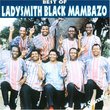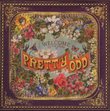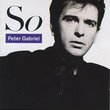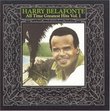| All Artists: Giovanni Pierluigi da Palestrina, Jeremy Summerly, Oxford Camerata Title: Palestrina: Missa Papae Marcelli Members Wishing: 0 Total Copies: 0 Genre: Classical Style: Opera & Classical Vocal Number of Discs: 1 SwapaCD Credits: 1 UPCs: 4891030505735, 730099557320 |
Search - Giovanni Pierluigi da Palestrina, Jeremy Summerly, Oxford Camerata :: Palestrina: Missa Papae Marcelli
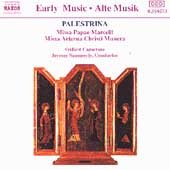 | Giovanni Pierluigi da Palestrina, Jeremy Summerly, Oxford Camerata Palestrina: Missa Papae Marcelli Genre: Classical
There's a wonderful legend, retold by (among others) Pfitzner's opera Palestrina, attached to the "Pope Marcellus" Mass: the Council of Trent, ground zero of the Counter Reformation, was about to ban all music but chant fr... more » |
Larger Image |
CD DetailsSynopsis
Amazon.com There's a wonderful legend, retold by (among others) Pfitzner's opera Palestrina, attached to the "Pope Marcellus" Mass: the Council of Trent, ground zero of the Counter Reformation, was about to ban all music but chant from the liturgy when Palestrina submitted this Mass, thereby changing the prelates' minds and saving church music. The writing is beautiful enough to deserve such a story: cheerful yet devout, comprehensible but not simplistic, without the complexity and secular borrowings (very prevalent in the preceding decades) that so perturbed the Council. The Missa Papae Marcelli has been recorded by choirs from Westminster Abbey to the Tallis Scholars, yet the Oxford Camerata does itself proud: Jeremy Summerly's reading of the music is reverently sweet, yet he's not afraid to make a joyful noise when appropriate--and the various voices are unusually clear. The equally radiant Missa Aeterna Christi Munera gets a similarly pleasing performance. Amidst serious competition, Summerly's readings of these Masses are among the best available--and, at Naxos's superbudget price, definitely the best value. --Matthew Westphal Similarly Requested CDs
|
CD ReviewsNot just a bargain disc... Guy Cutting | 03/12/2001 (5 out of 5 stars) "This disc might actually make a good Palestrina sampler, of sorts - at least a good sampler of his masses. The Pope Marcellus Mass is probably his best known mass, and both this mass and the Missa Aeterna Christi Munera are models of elegance and serenity. The latter piece is not recorded very often, so you would be advised to pick up this disc, which contains both of these splendid pieces. Normally in a review like this I would give some contextual/historical information about the pieces, but Palestrina and his Missa Papae Marcelli probably need little of this. It is often pointed out that this mass was written partly as model for textual intelligibility in polyphonic music; it is, though, even more than that: it is a model for perfection in Renaissance form. I have three other recordings of the Marcellus Mass - two are by the Tallis scholars (one on the Palestrina 400 collection and the other on another separate recording) and one is by a German Baroque choir that I can't and won't take the time to remember (the recording isn't very good). Of the two T. Scholars recordings, the one on the 400 collection is preferable for its tempo, the other for the better acoustics of the recording venue. Both are fine recordings - typical Tallis Scholars. I haven't heard the Voices of Ascension or Westminster Choir recordings of this mass, but they are probably good. I would recommend this present recording over the T. Scholars ones, though, for different reasons. First, the acoustics are preferable - there's more resonance in this one. The most importance difference is not really in interpretation (both groups render the music as flowing smoothly and slowly) but in the choral sound. Summerly's choir simply sounds fuller. For all their precision, the Tallis Scholars recordings sound thin - their sound lacks body, compared to the Oxford Camerata, although the former does seem to carry with it, as I said, the singular advantage of linear precision. In any case, the Oxford group sounds less pinched and more full-voiced. This really is a splendid recording - I only bought it to get the Aeterna Christi Munera mass, but was more than pleasantly surprised by the quality of both masses. This disc provides much more than you have a right to expect for 6 dollars. Strongest recommendations..." Beautiful music, great recording Guy Cutting | 06/20/2000 (5 out of 5 stars) "Palestrina's masses are unlike those of Bach, Beethoven, or Mozart. While the big three's masses are filled power and emotion, Palestrina's masses are more spiritual and reverent. They have a certain restrained quality to them which does nothing to diminish their great beauty, but perhaps makes them more reverent. "Otherworldly" might be a good word for these masses.This is a wonderful recording - theperformances are first rate, and everything is quite clear." Something familiar, something new FrKurt Messick | Bloomington, IN USA | 10/18/2005 (5 out of 5 stars) "--Palestrina--
Giovanni Pierluigi de Palestrina is sometimes called the greatest composer of the Roman Catholic church. Born in 1525 near Rome, he spent the better part of his career in service to the church as a choir member, choir master, conductor, composer and school master. He was sought after by many churches, and sometimes his popularity and skill got him into trouble both with his clerical patrons and with fellow musicians. He was offered prestigious positions in Rome and Vienna which were ultimately withdrawn because Palestrina's salary and conditions requirements were too high. He had some influence on the Council of Trent's musical decisions for reform of the Catholic worship practices, and was involved intimately with revising the Gradual and produced a harmonised version of the Latin Hymnal in 1589. He died in 1594. --Masses-- The first mass presented here is Missa Papae Marcelli. Written in the 1550s, it wasn't published until the next decade. Pope Marcellus was only pope for a few weeks, but managed to endear himself to composers and conductors by insisting upon clarity as the highest of virtues for choristers. There is a joy to this, as Palestrina is definitely in the mode of celebrating the life of Pope Marcellus. This is one of Palestrina's most recorded works. The second mass, Missa Aeterna Christi Munera is likewise a strong composition, although it is much less known than the first. Palestrina wrote over 100 masses in his lifetime (in addition to a wide range of other pieces), so it is not surprising that there might be some relatively overlooked. This particular mass has a more solemn tone to it, but still soars magnificently, and has no real flaws in composition. --Oxford Camerata and Jeremy Summerly-- The performance of both of these pieces is superb. Perhaps the better performance belongs to the second mass; the Camerata has twelve singers, who double on the six-voice Missa Papae Marcelli, but are able to triple on the four-voice Missa Aeterna Christi Munera. They play with tempo and expression in new ways. The Oxford Camerata was formed in the early 1990s under the direction of Jeremy Summerly - this disc is their second recording. (Legend has it there was a cement mixer just outside the Dorchester Abbey, and that the recording engineers missed the first session for recording due to car trouble.) Summerly's direction and selection of material and interpretation is such that it bears watching in the future. " |

 Track Listings (10) - Disc #1
Track Listings (10) - Disc #1